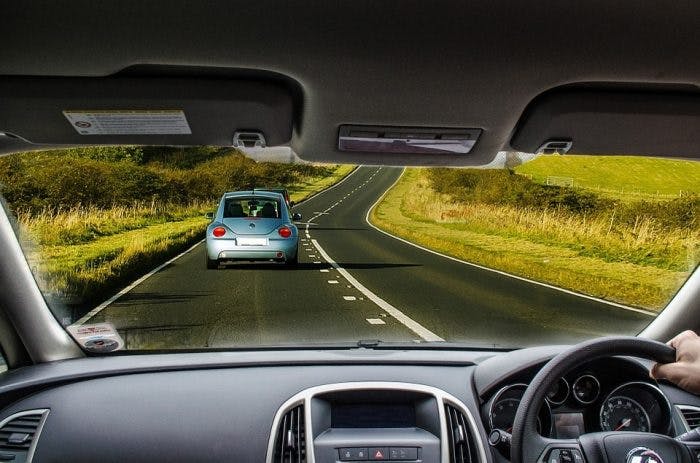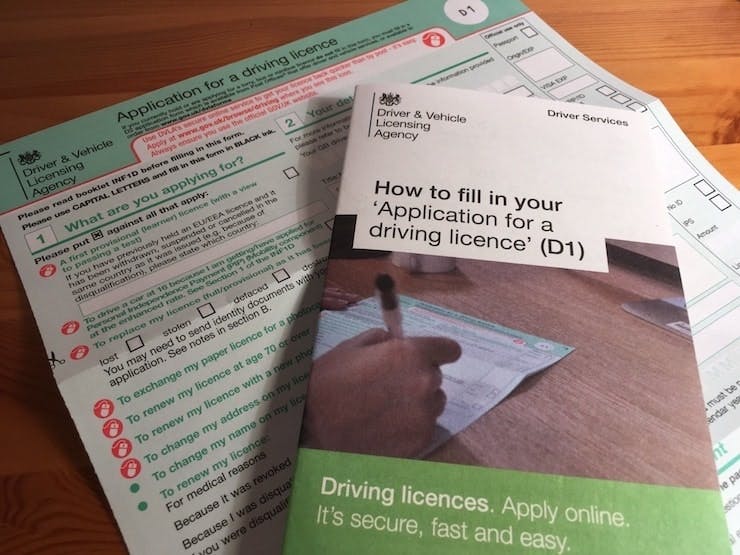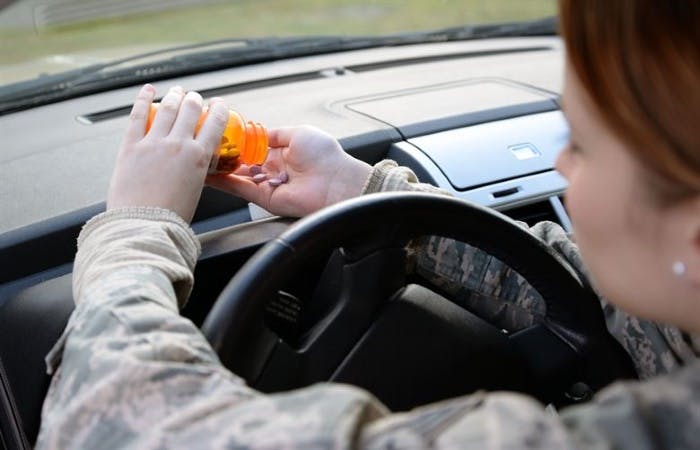
Getting your driving licence is a big step for anyone—and if you have a medical condition like epilepsy, it can seem even more daunting. But don't let all the confusing rules and horror stories of licence revocations get to you. That certainly won't help you get on the roads!
Instead, remember everyone's driving experience is different, and that applies to learners with epilepsy as well. What's more, we're here to support you. We'll clarify what the seizure requirements mean, and explain the ins and outs of applying for your provisional licence.
It won't be good news for everyone—but if you fit within the guidelines, there's no reason that you can't get that provisional and get behind the wheel.
Please note: this information relates to car or motorcycle licences only.
Can I learn to drive if I have epilepsy?
Although not everyone with the condition is allowed to drive, many people with epilepsy have long and successful driving careers. It’s all about the risk factor: how likely your condition is to impact on your driving.
The DVLA assesses this based this on the type of seizures you have had, and when you last had one. If they deem your epilepsy to pose an acceptable level of risk, you will be granted a provisional licence—providing you comply with medical advice. That includes taking medication if you’re told to by your doctors, and attending check ups designed to keep an eye on your condition. You might have to sign a declaration saying that you agree to this.
After that, the only barrier to getting your full licence is actually learning to drive a car! And that's something with which we can definitely help...
How long do you have to be seizure-free to drive in the UK?

Before you waste money on a rejected provisional licence application, familiarise yourself with the rules about seizures and driving, and learn how they apply to you. In the UK, you can usually apply for a provisional licence when:
- Your first seizure was over a year ago, and
- Your most recent seizure was over a year ago.
That’s because the DVLA are looking for an established pattern in your seizures. They need to be as sure as possible that you won’t have a fit when behind the wheel.
These rules apply whether your seizures happen while you're:
- Awake (where you lose consciousness)
- Awake and asleep
- Asleep
- Awake (where they don’t affect your consciousness)
If, however, you’ve had a one-off seizure, whether or not you lost consciousness, you may be able to apply 6 months afterwards. When you apply, DVLA medical advisors will decide whether you’ve got a high risk of having another seizure or not. They'll base their decision on factors like your EEG results.
If you are deemed high risk, you can reapply a year after your seizure. If you’re thinking of applying for your provisional, always discuss your fitness to drive with your doctor first. They’ll be able to tell you about the type of fits you have and whether being able to drive safely with your epilepsy is an option.
What’s the process for getting my licence?

Just like every wannabe driver, you need a green provisional licence before you can start lessons. When you fill out your application, there’s a whole section about your medical history.
This is where you need to declare that you have epilepsy or seizures. If you don’t, you risk a £1,000 fine, and could be prosecuted if you have an accident because of it. Everyone’s epilepsy affects them differently, so that’s not enough information for the DVLA to decide whether you’re fit to drive.
You also need to fill out an FEP1 form and send it in too. There, you’ll be asked for more details about your seizures, as well as ways the DVLA can get in touch with your doctor(s). This is so that they can understand more about your condition and assess each application on a case-by-case basis.
How long will it take to get my provisional licence if I have epilepsy?
Since the DVLA needs to assess your application in light of specific medical information, it could take longer than the normal 1-3 weeks to get your provisional approved. If you have epilepsy and are looking to learn to drive quickly, there are a couple of things you can do to make sure you get your licence in good time:
- Plan ahead. Remember, you can apply for a provisional licence from when you are 15 years and 9 months old.
- Provide all the information required in your initial application. The less back and forth required, the quicker the process will be.
Use this checklist to help your application go as smoothly as possible:
✓ Make sure you fulfil the eyesight requirements and age rules for a provisional driver
✓ Check with your doctor about your fitness to drive, specifically regarding the types of epileptic seizure you experience, and the dates they occurred
✓ Declare your condition on your application
✓ Fill out an FEP1 form and send it in with your application (or as soon as possible afterwards)
Can I drive if I am on seizure medication?

Lots of people rely on medication to control their epilepsy, so if you’re advised to take anti-epileptic drugs (AEDs), that’s exactly what you should do.
If your medication is stable, you just need to tell the DVLA about it when you apply for your provisional, and then again whenever you have to renew your full driving licence.
However, if you change or stop your epilepsy medication at any point, you will probably have to stop driving for a period, while your doctor monitors your health. Your doctor will advise you further on this. If you are told to stop driving for 3 months or longer, you must tell the DVLA.
If you have reduced, changed or stopped your medication and subsequently have a fit, you must:
- Inform the DVLA, and
- Stop driving immediately.
You can re-apply for your licence when:
- You’ve been back on your previous medication (at your previous dose) for 6 months, and
- You haven’t had a seizure during that time.
FAQs
1. What if I have a seizure when I have my provisional or full driving licence?
You may have been granted a licence that allows you to have certain 'permitted seizures', like asleep seizures or awake seizures where you do not lose consciousness. If your new seizure was the same type, then you can continue driving as normal.
However, if you have any other type of seizure at any point when you hold a provisional or full driving licence, you need to stop driving straight away. You also need to tell the DVLA. If possible, you should surrender your licence rather than risk having it revoked. This will probably mean you’ll be able to drive again sooner.
The full guidance detailing how long you have to stay off the roads for is available on the government website.
You’ll be sent a letter telling you when you can re-apply for your licence—8 weeks before your suspension is due to end. Always check with your doctor before applying. It can take several weeks to get your new licence, so it's best to see your doctor, then send back your completed application as soon as possible.
If you surrendered your licence, you might be able to drive when your suspension period lifts, so long as the DVLA have received your application and you fulfil the medical requirements for driving. This is set out in more detail under Section 88 of The Road Traffic Act 1998.
If you've had your licence revoked, you will have to wait until your new licence comes through before getting back on the roads.
2. Who can confirm I’m fit to drive?
Your doctors will be consulted on how your epilepsy affects you, but it is ultimately down to the DVLA to decide whether or not to grant you a driving licence.
If you think they’ve got it wrong, you can ask them to reconsider, but only if you can provide evidence that wasn’t used in the original assessment.
You can also appeal the decision, within 6 months at your local magistrates' court. It's best to seek legal advice before going through with this, though, as you may be responsible for the DVLA’s costs if you lose.
3. What if I have a seizure that’s not epileptic?
If you have fits, but are diagnosed with something other than epilepsy, you still need to tell the DVLA. You may be allowed to drive, but you’ll have to answer additional medical questions when you’re applying for your provisional and whenever you re-apply for your licence (usually every 10 years). If you have any more seizures, you need to tell the DVLA each time, unless they are ‘allowed’ under your licence.
4. Will my car insurance go up if I have epilepsy?
The 2010 Equality Act prohibits car insurance prices from being hiked up just because of a medical condition or disability. That’s because your fitness to drive is determined by the DVLA, rather than insurance companies. You might have to tell your insurance company about your epilepsy, but it shouldn’t make any difference to the amount you’ll have to fork out each year.
Remember that lots of other factors go into deciding on your car insurance premium, like your age, amount of driving experience and even your job title.
5. How long will my driving licence last?
If you’ve got epilepsy, you might receive a ‘medically restricted’ driving licence. This could last for 1,2,3 or 5 years, after which you’ll have to apply for it to be renewed. If you’ve been seizure-free for 5 years, you will probably be granted a full licence.
This will last until you’re 70—but you’ll have to renew your photocard every 10 years. Bear in mind that renewing (or re-applying for) your licence can take considerably longer than for people without a notifiable medical condition.
6. What if I have to stop driving due to my epilepsy?
Being denied the freedom to drive is a big blow. But that doesn’t mean you can’t still get around. See whether you qualify for any of the following schemes that offer free or discounted travel options to those with epilepsy:
Subscribe for driving advice, offers & more
We'd love to let you know about our courses, news and offers via email. You may unsubscribe at any time.
Star Genie Limited trading as PassMeFast. Company number 10093359
Copyright © 2024 owned by Star Genie Limited
PassMeFast, Blue Tower, MediaCityUK, Salford, M50 2ST

